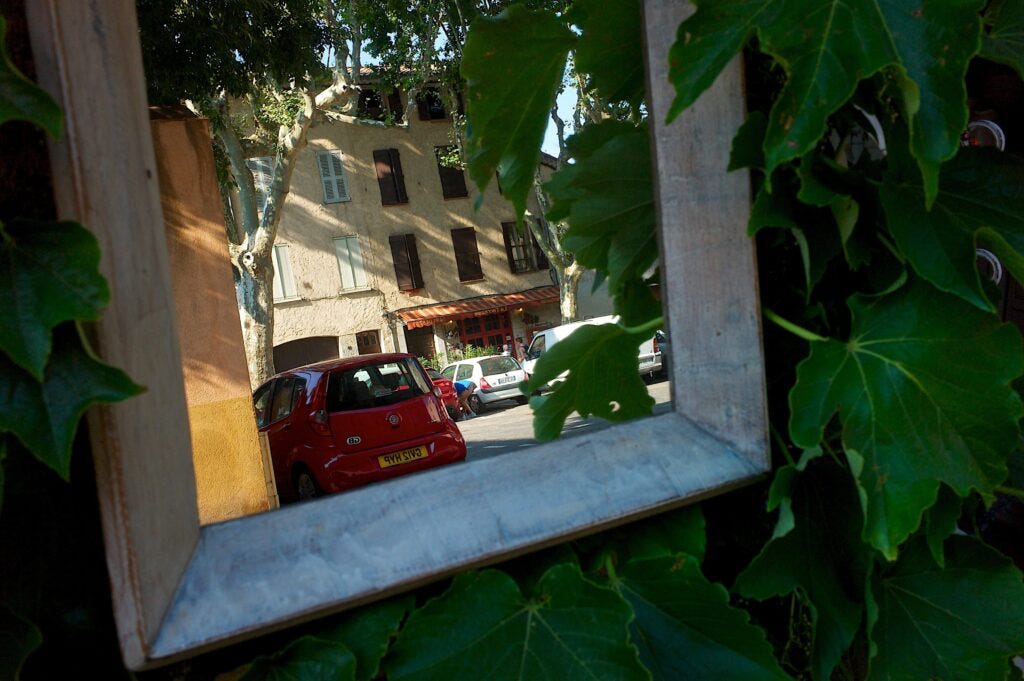On reflection…
Quote of the Day
”I used to be Snow White… but I drifted.”
Mae West
Musical alternative to the morning’s radio news
Händel | “The Harmonious Blacksmith” | Wilhelm Kempff
Long Read of the Day
George Packer on the War in Ukraine
Transcript of another sobering conversation, this time between Packer and Yascha Mounk.
Q: What do you think the lasting significance of this moment is going to be?
Packer: It’s very hard to know, since the moment has just begun. As much as I expected this—I never thought Putin was bluffing—I’m also shocked by it. There’s something profoundly disturbing and astounding about the sight of tank columns, airborne assaults, and ballistic missiles in Europe. I think it could go one of at least two ways. Either this will be the moment when Western democracies realize that there’s a new Cold War—which is very hot right now in Ukraine, but which has been building for years, in the form of great power autocracies that have become more and more bold and energetic, using threats and force to get what they want. The moment when not just the Western democracies, but all democracies realize that they have to put up a struggle—to see this as a concerted threat to what we care about, and that it’s not going to stop in Ukraine. It may not stop in Hong Kong. So that would be one way to mark this moment, looking back: as the moment when, essentially, the democracies got serious and realized that this was a fight that they couldn’t keep avoiding. And I don’t mean guns-blazing “fight”; I mean seeing this as the greatest threat to our interests, which really are very close to what our values are, or should be.
The other way it could go is that this is a moment that Putin wins, and doesn’t really suffer enough to regret. Xi Jinping sees it as an outrageous move that Putin got away with, and that they—and other autocratic and kleptocratic states who have been in informal alliances—are emboldened and begin to act with more and more impunity and audacity. Meanwhile, the rest of the world continues to look on with horror, but in a sort of state of passivity or paralysis. I think the next few weeks are going to tell us a lot more about which of those two outcomes we’ll look back on when we think about the invasion of Ukraine.
We’re appalled by Putin now, but the west gave him the green light
Good column in the Guardian by Jonathan Freedland.
The History Channel is broadcasting live. The US commentator who made that quip meant that events currently unfolding in Ukraine will be remembered for many decades to come, that future generations of schoolchildren will be called to memorise the date of 24 February 2022. But it’s true in another, darker sense too. For this is a grimly retro war. Russian troops marching across an international border, closing in on a European capital? Families sheltering in underground stations, children parted from their fathers, civilians donning uniforms and reaching for rifles, vowing to fight to the death for their homeland? An actual invasion of one European country by another? Footage of such events looks strange in colour: it should be in grainy black and white.
Because Europe was meant to have left such events behind, if not in the 1940s – when the Nazi bombardment of Kyiv began at 4am one day in 1941, rather than the 5am hour chosen on Thursday by Vladimir Putin – then later in the 20th century, when Soviet tanks rolled into Budapest in 1956 or Prague in 1968. Instead, history is back – confronting us with a choice we imagined we’d made long ago.
Freedland’s point is, in a grim way, the obvious one: that nobody who was paying attention over a decade and a half could have been surprised by Putin’s invasion. He transgressed three times over that period, and each time didn’t pay the price for his aggression. So not surprisingly he assumed he’d get away with overrunning Ukraine.
This is all the wisdom of hindsight, of course. Same applies to the question of how it was that Germany and other continental European states felt able to make themselves so vulnerable to an autocrat over critical supplies of gas and oil.
There’s something about contemporary democracies and their ruling elites that makes them congenitally incapable of thinking ahead.
My commonplace booklet
Clever use of the Tinder app by a young Ukrainian woman.
She conned invading Russian soldiers into giving away their locations. Link





Hi John - many thanks for all the effort you put into creating your daily newsletter, which is invariably one of my first ‘go-to’s’, here in West Wales. I listened to this yesterday - https://www.bbc.co.uk/sounds/play/w3ct1jpy - which I think both complements and extends in some ways the conversation between Packer and Yascha Mounk. Very best wishes to you and yours Robin